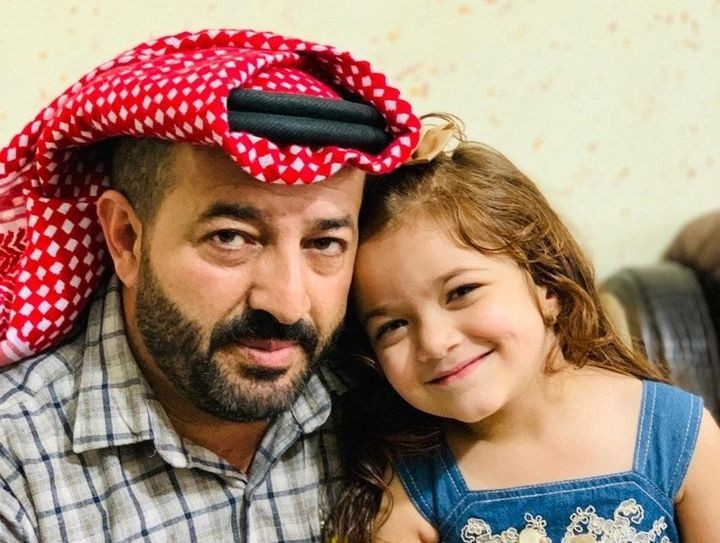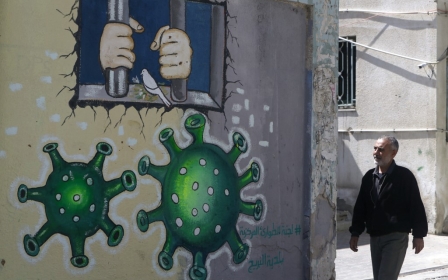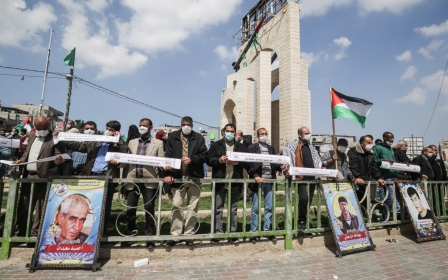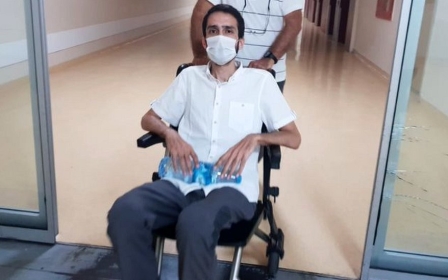Palestinian prisoner's hunger strike against administrative detention hits 75 days

A Palestinian prisoner has been on a hunger strike for 75 days in protest against his administrative detention - imprisonment without charges or trial - by Israel.
Maher al-Akhras, 49, said this week that he will not cease his hunger strike. In a video message from his hospital bed in Kaplan Medical Centre in Rehovot, Israel, Akhras said the aim of his protest strike was “either freedom for my family and my children, or my killing in the name of their false justice”.
Akhras asked his relatives and friends to not allow an autopsy in the event of his death. “Don’t allow anyone to touch my body and tear it,” he said.
Akhras's wife began a hunger strike of her own this week.
Administrative detention was first implemented in Palestine under the British Mandate and has since been adopted by Israel.
New MEE newsletter: Jerusalem Dispatch
Sign up to get the latest insights and analysis on Israel-Palestine, alongside Turkey Unpacked and other MEE newsletters
The highly controversial policy, used almost exclusively against Palestinians, allows for detention without charge or trial for renewable periods of three to six months, without the possibility of appeal or knowing what accusations are being levelled against the detained.
Many Palestinian prisoners have resorted to going on hunger strike to protest against being sentenced to administrative detention.
According to Palestinian prisoners' rights group Addameer, 4,400 Palestinians were detained by Israel as of September, with 350 of them under administrative detention.
Akhras was arrested in July and was hospitalised in Kaplan Medical Centre in September.
Qadri Abu Bakr, the head of the Palestine Liberation Organisation’s (PLO) Committee of Prisoners' and Former Prisoners' Affairs, warned that Akhras's health was deteriorating and could lead to “damage” to the heart, eyes and ears, especially after Akhras refused to take supplements offered by Israeli doctors.
Born in 1971 in the village of Salileh in the northern occupied West Bank, Akhras, a father of six, has been imprisoned by Israeli authorities at least five times since he was a 18 for at least five years in total.
He was detained for seven months in 1989, for two years starting in 2004, 16 months starting in 2009, 11 months in 2018, and most recently in July.
Middle East Eye delivers independent and unrivalled coverage and analysis of the Middle East, North Africa and beyond. To learn more about republishing this content and the associated fees, please fill out this form. More about MEE can be found here.




